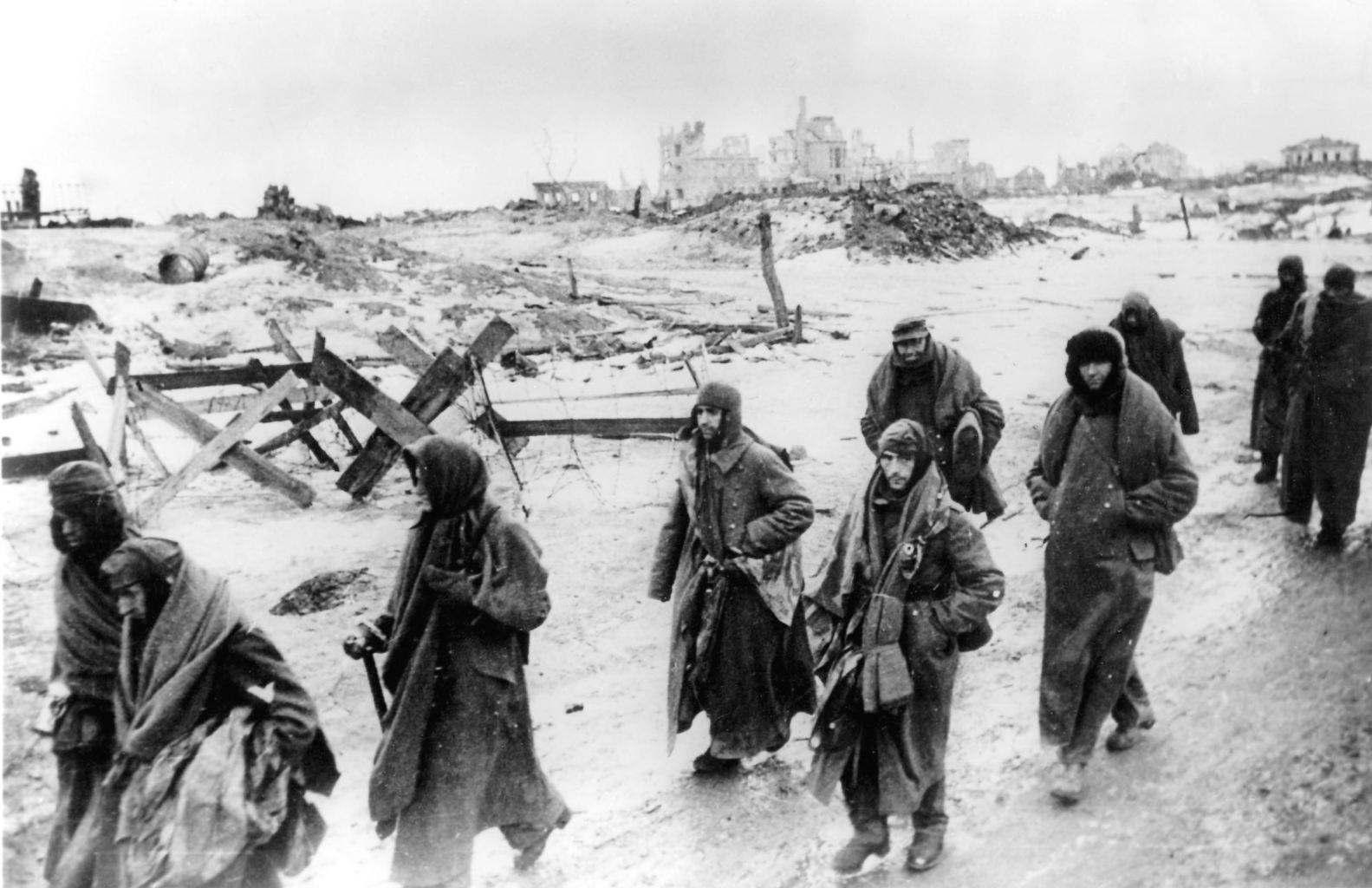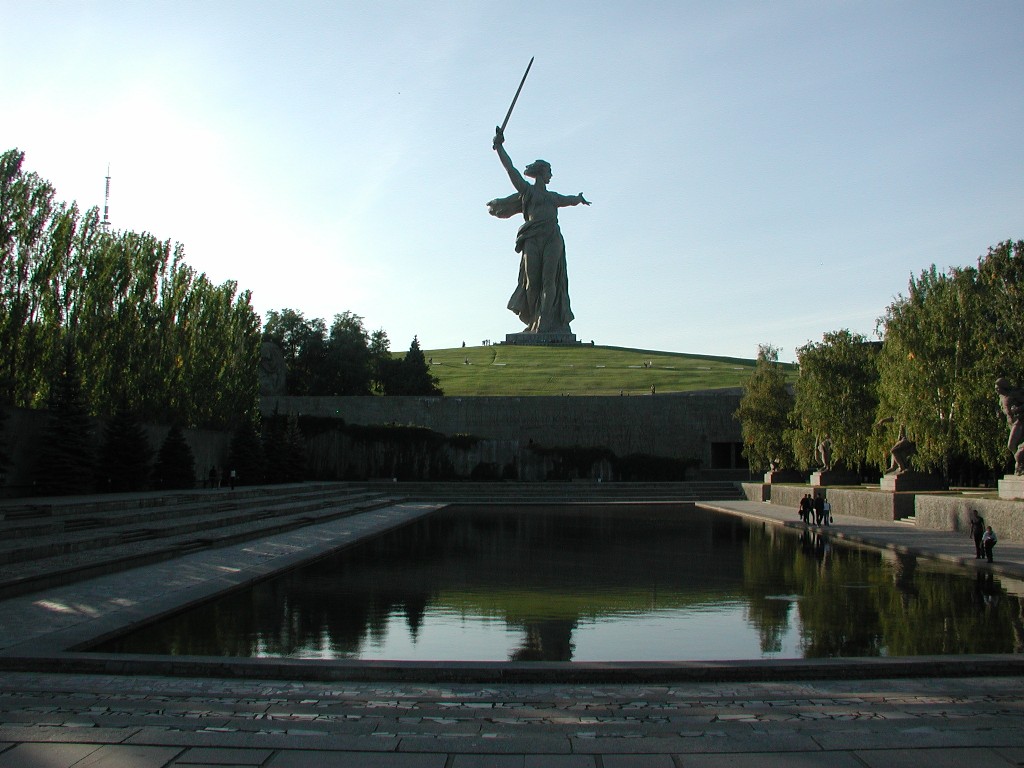By ALEXANDER ZEMLIANICHENKO | Associated Press – 39 mins ago

FILE - In this early 1943 photo, captured German soldiers, their uniforms tattered from the battle, make their way in the bitter cold through the ruins of Stalingrad, Russia. On Saturday, Feb. 2, 2013, Russia marks the 70th anniversary of the end of the Battle of Stalingrad, considered a turning point in World War II. (AP Photo/hpr, File)
VOLGOGRAD, Russia (AP) — An aged T-34 tank clattered into the center of the southern Russian city once known as Stalingrad and soldiers dressed in World War II-era uniforms marched solemnly as Russia marked the 70th anniversary of the end of one of modern warfare’s bloodiest battles.
President Vladimir Putin came to the city later Saturday to take part in the commemorations, including a visit to the famous hilltop memorial complex surmounted by a towering 87-meter (280-foot) statue of a sword-wielding woman representing the motherland.
“Stalingrad will forever remain a symbol of unity and invincibility of our people, a symbol of genuine patriotism, a symbol of the greatest victory of the Soviet liberator soldier. And as long as we are devoted to Russia, our language, culture, roots and national memory, Russia will be invincible,” Putin said at an evening commemorative concert.
The city 900 kilometers (560 miles) south of Moscow suffered six months of intensive fighting, beginning with massive air strikes, as Nazi forces tried to push deep into the Soviet Union and reach its Caucasus oil fields.
At least 1.2 million people are estimated to have died before the fighting ended on Feb. 2, 1943. The Red Army’s defeat of the Nazis after house-to-house battling was a decisive turn in World War II.
One of the houses became a particularly resonant symbol of the battle. The four-story apartment building became known as the Pavlov House after the sergeant whose platoon inflicted heavy damage on Nazi troops and tanks while under heavy attack for two months, even as civilians continued to occupy it.
A woman born in the house a couple of months before the siege, Zinaida Andreeva, told the Interfax news agency Saturday that “for me, Feb. 2 is like a birthday. It’s a special day, in which tears and happiness are side by side.”
The city was renamed Volgograd in 1961, as part of the Khrushchev era’s drive to erase the personality cult of Soviet dictator Joseph Stalin. But the name Stalingrad is indelibly connected with the battle that is one of Russia’s most-lauded military achievements.
The connection is so strong that the city council this week passed a resolution under which it would use the name Stalingrad in official communiques on the day commemorating the battle’s end, as well as five other days marking World War II events.
The legacy of Stalin remains a delicate issue nearly 60 years after his death. Although widely reviled for his decades of brutality and repression, many laud him as leading the people to victory against Nazi Germany amid immense suffering.
In a controversial move, Stalin’s image adorns five buses that are to run in Volograd until Russia observes Victory Day on May 9, and similar buses were to run Saturday in St. Petersburg and Chita.
The leader of the liberal Yabloko party’s faction in the St. Petersburg city council, Georgy Poltavchenko, denounced the Stalin buses.
“The victory in the Great Patriotic War” as Russians call WWII " including the victory in the battle on the Volga, was not achieved thanks to the ‘military genius’ of Stalin … but thanks to the heroic resistance of our people," he was quoted by Interfax as saying.
Jim Heintz in Moscow contributed to this report
Yahoo Link



